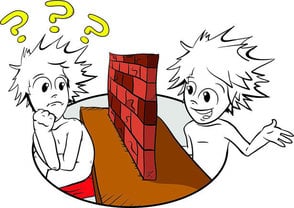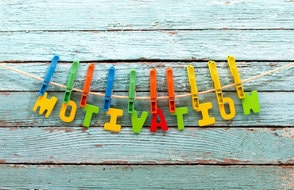- Our brain is like a muscle. You want your muscles to be fit and functional and the same goes for your brain. Your body needs regular training sessions to stay fit, and so does your brain. The most important functions of our brain are memory and the ability to remember things. However, when we talk about memory, we mean "long-term memory" which is the ability to learn something and remember it even after a few years. Long-term memory has to do with the capacity of our brain to store knowledge and retrieve it when necessary.
-
How we learn best
- Long-term memory has special importance in learning foreign languages. Otherwise, we would never be able to speak them because we would forget them as soon as we are done learning. In order to determine the best way for us to remember, we need to determine how we learn best.
- People are roughly divided into two categories: visual and auditory learners. Visual learners say that they learn best when reading a text or looking at images or text and images combined. For example, they can learn if they are watching a movie and reading the subtitle. They make a connection between images and words.
- Auditory learners learn best by listening. For auditory learners it is extremely helpful if they repeat what they hear and ask for the meaning of the word or phrase, so that they can make an immediate connection.
"Every learning activity starts and ends with listening, watching and doing."
- Here are some useful tips on how to memorize new words and phrases best.
-
Take notes
- Writing things down is an excellent way to remember them. Most learners say that they remember the word better once they have written it down (along with its meaning in their native language, of course). Whether you read or listen or watch films, write down what you hear to reinforce the memorization process.
-
Read in English
- Reading extensively is a great way to remember words. If you are a beginner, ask your English language tutor to provide you with simple texts that contain all the words you have learned so far and a few more. Or, ask him/her to suggest useful resources. Graded readers by different publishing houses are also a good way to learn and remember language. If you are on a higher level of English language learning, read blogs, magazines, newspapers, articles – the imprint made on your brain is worth the time.
-
Active listening
- Language learning is all about listening. You listen to catch the melody of the language, the intonation, and the rhythm. It is also called modeling. You try to sound like your English language tutor or an actor in a film.
- Here are few tips for the best result:
- When you listen actively, you give feedback in the form of repetition to make sure you have heard correctly.
- Try to repeat the phrases or paraphrase them using your own words.
- Repetition drills are very important, especially when your English language tutor and you don't share the mother tongue, or if you are a beginner.
- Most importantly, ask for the explanation of the word or phrase that you are learning.
-
Visualisation
- Most learners will agree that they visualize things when they listen to something. Some English language learners think in pictures. It also helps them to draw diagrams or mind maps of the new words and phrases they are learning. That way they can memorize them better by grouping them in the best possible way for them to remember. For example, if you need to memorize the words similar to 'search', it may be easier for you to create a mind map by yourself on www.text2mindmap.com and write all the synonyms. That way you take an active role in the process of learning and memorizing.
-
Create context
- When you learn a new word or a phrase, always ask for the situation that provides its use. Then think how and when you may use it. Try making sentences with it. It is always easier to remember things used in a specific context than thinking of them as independent units. Learning through context becomes even more important when you start learning idiomatic expressions. For example, when learning "Cool as a cucumber", think when you may say it, in what situation, practice saying it with your English language tutor or with your colleagues.
-
Revise regularly
- Always make sure you set aside enough time to revise 'old' words and phrases. Revise regularly; otherwise, when not used, words tend to get easily forgotten.
-
Learn spelling
- And what about spelling, remembering how a word is written? It is much easier for visual learners because most of them claim they can close their eyes and see the word. For the rest of you, copy as much as you can or use spelling practice apps. Think about the same groups of letters and how they are pronounced and practice a lot. If that doesn't help, use a spellchecker!



